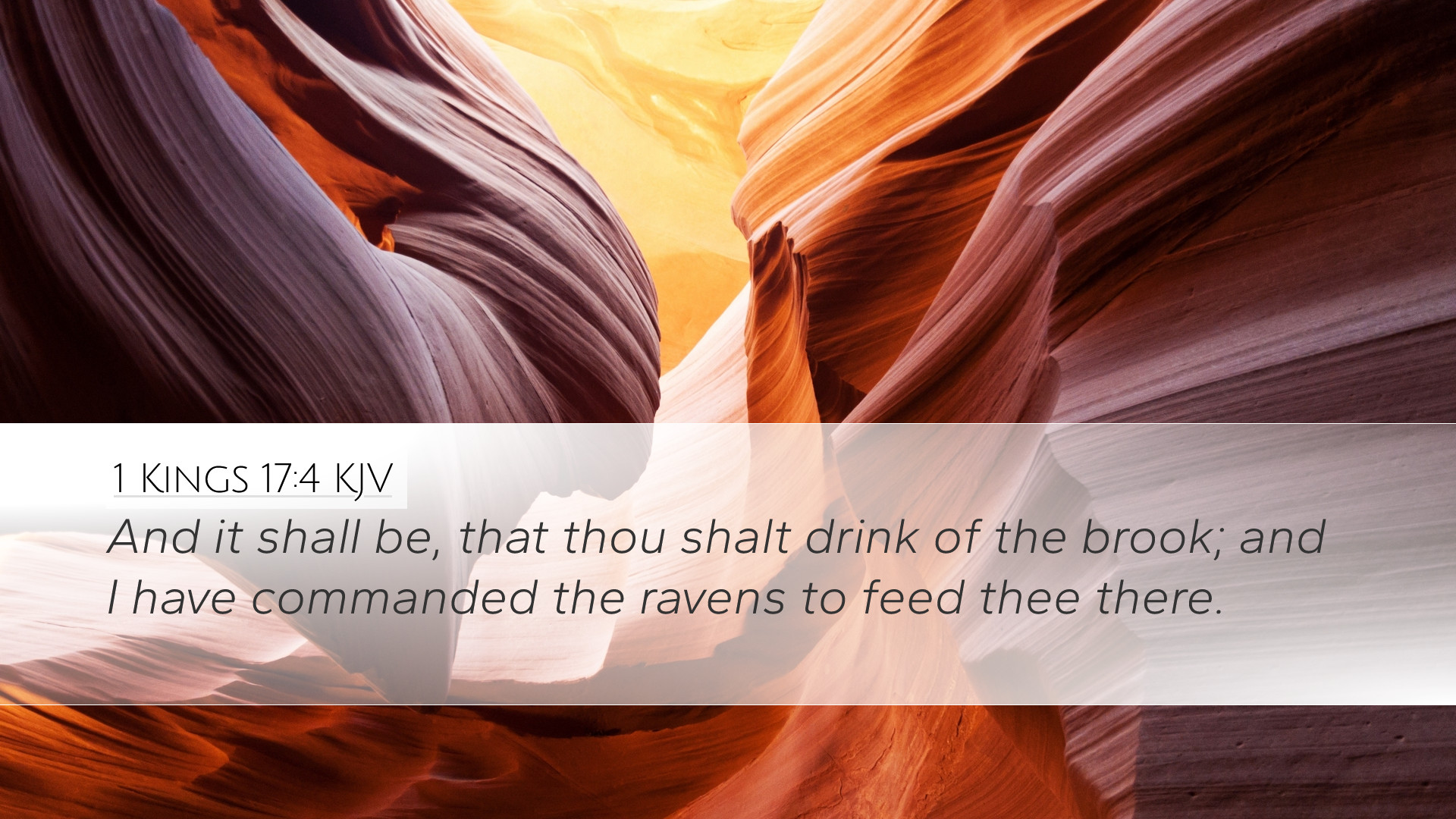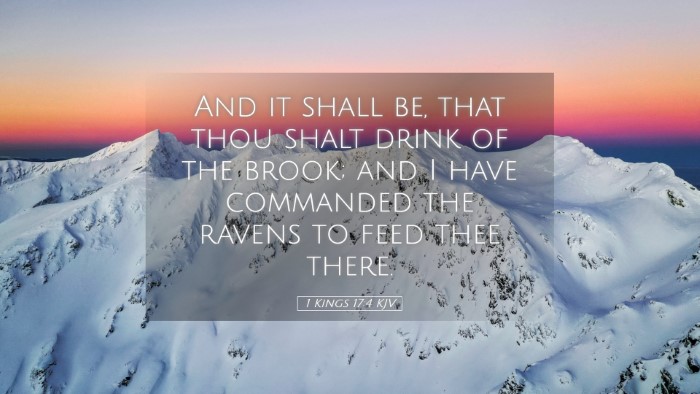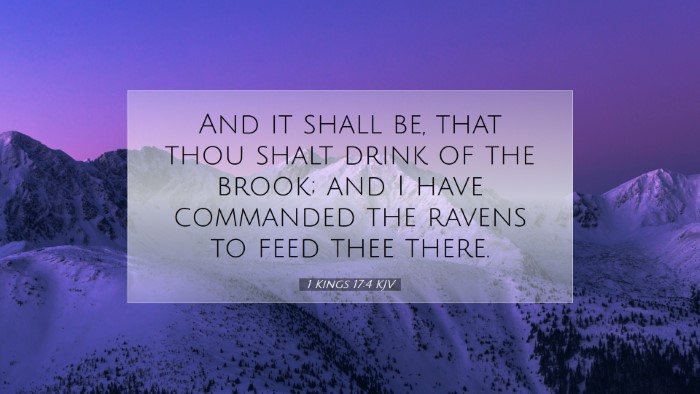Commentary on 1 Kings 17:4
Verse: "And it shall be, that thou shalt drink of the brook; and I have commanded the ravens to feed thee there."
Introduction
This verse is a remarkable exposition of God's providence and provision. In 1 Kings 17, we witness the prophet Elijah in a dire situation, yet God’s promise to sustain him through miraculous means unfolds a deeper theological significance regarding faith and divine intervention.
Contextual Background
Before delving into the specifics of this verse, it is essential to consider its context within the broader narrative of Elijah's prophetic ministry. This was a period of great apostasy in Israel, marked by the worship of Baal and a rejection of Yahweh’s authority. Elijah, as a prophet, was a voice of divine truth amid the decay of spiritual integrity.
The Command to Drink and Eat
In 1 Kings 17:4, God instructs Elijah to drink from a brook and promises that ravens will feed him. This command illustrates several profound truth:
- Dependency on God: Elijah’s survival is wholly contingent upon God’s provision. The brook represents a physical source of sustenance, while the ravens symbolize God’s unconventional means of care.
- Divine Sovereignty: The act of God commanding ravens to feed Elijah underscores God’s absolute control over creation. Despite the lack of conventional channels for sustenance amidst a drought, God's sovereignty manifests through nature.
- Obedience in Uncertainty: Elijah's response to God’s command is pivotal. By obeying, he demonstrates a profound faith that does not rely on visible resources, showcasing a trust in God’s spoken word.
Insights from Public Domain Commentaries
Matthew Henry
Henry emphasizes the miraculous nature of God’s provision: “God's care for His own is manifested in the most surprising and unexpected ways.” He draws attention to the ravens, creatures often associated with scavenging, indicating God’s ability to repurpose even the lowliest of means for divine purposes. Henry notes the symbolic nature of these actions, highlighting how they reflect God's commitment to sustain His prophets even in difficult times.
Albert Barnes
Barnes reflects on the nature of the command given to the ravens, noting their unusual behavior in this context. He writes, “Ravens are creatures of instinct and habit; yet God directs them contrary to their usual feeding practices.” This insight speaks to the theme of God’s authority over both nature and the hearts of creatures, showing that divine agency can override natural tendencies. Barnes also emphasizes that this account should strengthen believers' faith in God’s provision, particularly in moments of need.
Adam Clarke
Clarke provides a thoughtful commentary on the significance of Elijah’s location by the brook. He highlights that “the brook Cherith signifies separation,” suggesting that God often leads His servants away from the crowds and into moments of solitude for growth and reflection. Clarke’s insight provides a reminder that God sometimes leads His followers into periods of isolation, making it a transformative experience.
Theological Implications
Several theological themes emerge from 1 Kings 17:4:
- Faith amidst Despair: This verse stands as a testament to faith in God’s provision during times of despair. Just as Elijah had to trust God amid a drought, modern believers are called to exercise faith in God's ability to provide irrespective of circumstances.
- God’s Unconventional Methods: The choice of ravens—creatures typically associated with uncleanliness in Jewish law—highlights God's ability to transcend human expectations and norms.
- Divine Providence: This passage illustrates a critical doctrine in Christian theology: God’s providential care extends to all creation, even using those things we least expect to fulfill His plans.
Conclusion
In examining 1 Kings 17:4 through the lens of public domain commentaries, we glean rich insights into God's nature as a provider and the key role of faith. The lesson encapsulated in this verse is timeless, encouraging believers to trust in God's plans, even when the means seem insufficient or improbable. As Elijah’s story unfolds, it continues to remind us that God is ever-present, directing both the hearts of men and the entire natural world to achieve His sovereign will.


